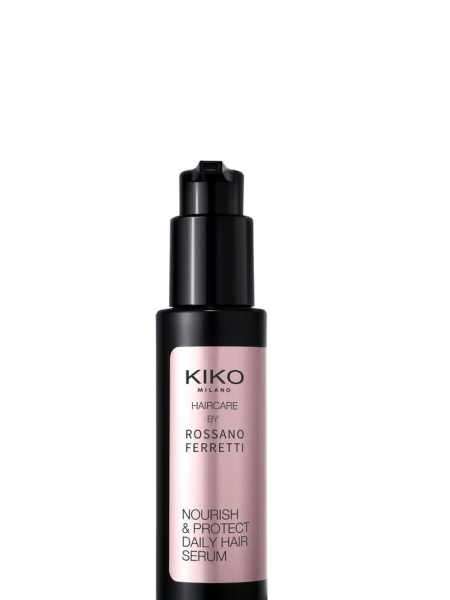
Lately, all I do is talk about perimenopause and the injustice of women’s healthcare. I’ve been a whole lot of fun to be around. The day we are born, we have all the eggs in our basket, so to speak (or one to two million oocytes in our ovaries, if you want to be specific). By the time we are 30, we have 10 per cent of those eggs, and by the time we are 40, we have just three per cent left. As our eggs dwindle, our oestrogen and progesterone levels start to lower as well. This is perimenopause and you may begin to notice “the change” as early as 35. Once we have no more eggs, we stop menstruating and our ovaries stop producing oestrogen, the hormone that was essential for our bodies and minds to run relatively smoothly for the first half of our life.
From there, you’ll likely develop one of over 50 different symptoms of perimenopause. The vasomotor symptoms (hot flashes and night sweats) are the ones that get all the publicity. However, lesser known symptoms can include debilitating fatigue, brain fog, unexplained weight gain, depression, panic attacks, decreased libido, dry skin, hair loss, digestive issues, vertigo, dizziness, heart palpitations, joint pain and itching/crawling sensations on the skin. It’s a natural part of ageing, and the symptoms we women must endure, or so we’ve been told.
My perimenopause journey began with a “frozen shoulder” or adhesive capsulitis. My right shoulder hurt and then one day, I couldn’t raise my arm or put my hand on my hip without excruciating shock-waves of pain reverberating through my shoulder, arm, and neck. The issue soon moved to my left arm as well, and for 10 months I went to multiple doctors, got X-rays, MRIs, physical therapy, massage and acupuncture. I literally could not pull up my own trousers without assistance — I knew I didn’t feel like myself and wanted to know what was happening to me. I experienced many of those 50 symptoms (exhaustion, depression, weight gain, aches, just to name a few), and over the course of a year went from the picture of health to miserable. But get this — not once during that time did any of my doctors mention my hormones.
I discovered a Duke study from 2022 that linked lower oestrogen levels to frozen shoulder syndrome, which is most common in women between 40 to 60 (my age bracket). After that, things began to get clearer. Although my doctors were skeptical (one even said “I don’t see a correlation, it’s a repetitive strain injury,” but I’m not a baseball player), I was convinced this was what was happening to me. And I was annoyed.
Gynaecologist, Mary Claire Haver, who is the author of The New Menopause and member of the social media force known as “The Menoposse,” explained that doctors aren’t trained to recognise perimenopause symptoms, making it both under-recognised and unlikely to be properly treated. “I got maybe an hour lecture in medical school about menopause; in residency, I got about six hours out of a four-year curriculum.” Even though half of the population spends a third of our life or more in this depleted hormonal state (perimenopause, menopause and post-menopause), the medical field hasn’t deemed it necessary for more education on the subject. Because of this, women like me are sent to 10 different doctors for 10 different problems and given an array of medications without addressing the root cause of the symptoms: hormones.
Another problem is the lack of good medical research on the subject. Lauren Streicher, a clinical professor of obstetrics and gynaecology at Northwestern University and founding medical director of the Northwestern Medicine Center for Sexual Medicine and Menopause, explains that about 20 years ago the WHI (Women’s Health Initiative) released findings that indicated that one measure to treat perimenopause symptoms – hormone therapy – increased the risk of cardiovascular disease, breast cancer, and stroke. “This study caused millions of women to flush their hormone therapy down the toilet and is still the reason why many practitioners are hesitant to give oestrogen to patients who are suffering. Even though subsequent studies of the WHI pointed out flaws that skewed the data.”
The new data from the WHI published in JAMA found that for younger women dealing with perimenopause (those under 60) the benefits of hormone therapy could outweigh the risks. Dr. Streicher tells me that subsequently, “hormone therapy has been shown to decrease the risk of hip fracture, uterine cancer, heart disease, breast cancer, along with a 30 per cent decrease in overall mortality.” Even with this information, federal funding for menopause research has been little to none. Because of this, actress Halle Berry – supported by Senator Patty Murry and Senator Lisa Murkowski – is pushing for $275 million in support from the US federal government, to destigmatise menopause and begin to catch up on valuable research and medical training.
With this new arsenal of information, I spoke to my gynaecologist about hormone therapy but feared I would not be a candidate because of a family history of breast cancer. The first doctor I met with did a blood test with a full hormone panel and said my oestrogen levels seemed fine at the time. Dr. Haver explains that a one-time blood test has limitations due to the big fluctuations that occur throughout our cycles in perimenopause (which she calls the “zone of chaos”) so it’s not a great indicator. “I am doing blood work but rarely a hormone panel in perimenopause, I’m looking at thyroid, inflammation markers, nutrition labs and basic health markers because things can overlap or look like perimenopause so I want to rule out other causes first, but most of the time the lab work is normal and it is perimenopause,” says Haver.
Still suffering, I went to a different gynaecologist, who recommended genetic cancer testing. “Very few women are not candidates for hormone therapy which can include oestrogen, progesterone and testosterone. Certain cancers, blood clots and liver problems or other specific health issues are contraindications but family history alone does not preclude someone from hormone therapy,” says Haver.
I was frustrated: I didn’t want to suffer another minute, but felt like neither of the appointments came with a resolution — and I live in a city with many resources. I couldn’t imagine what it’s like for those who don’t. Dr. Streicher says menopause.org is a good starting place for research, as well as Telehealth or sites like My Alloy, MIDI, and Evernow. I chose MIDI because it focuses specifically on menopause care and accepts many different types of insurance. In the end, I chose hormone therapy.
Streicher does what she calls a “menopause master plan” with her patients: It’s a 90-minute one-on-one which goes through a patient’s entire medical history and every symptom, deciding what the patient wants to address the most, then discussing all of the options while providing her expert opinion. “I’m looking at the long term, what are the things that will impact your length of life and the quality of your life 20 to 30 years down the line,” says Streicher. Unfortunatley, this isn’t the standard level of care most women get during this time.
Every expert stressed that when speaking to your doctor about perimenopause symptoms, it’s important to be specific about what you are going through. Try tracking the symptoms during a given month to see if some are more prevalent at different times in your menstrual cycle, noting each and every change, even if you think it has nothing to do with perimenopause — because it just might.
According to the followers of “the Menoposse” some common statements they’ve heard when seeking help are “just have a glass of wine and relax,” or “symptoms should lessen over time” (perimenopause can last ten years!). Hormone replacement therapy may not be the best option for everyone, there are risks and benefits, but every woman deserves to have a conversation with their doctor.
Every woman also deserves to have doctors who are well-educated on perimenopause. But if your doctor dismisses your concerns, or simply doesn’t listen — that’s a red flag to seek another professional. You’re the best advocate for your health until you find the perfect partner to help you.

